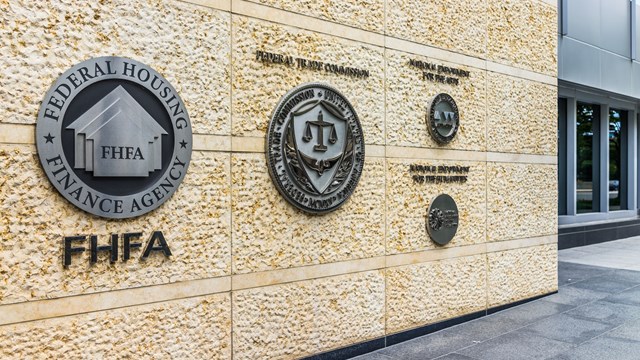Any good American citizen will likely say that they have always had a right to freedom of speech, probably since birth. It seems almost unfathomable that one would have relinquished freedom of speech along with a deposit check in exchange for a new set of keys and fob when deciding to call a community association “home.” But something about a typical association’s ideal of conformity, desire for order and reliance on rules can have a muzzling effect on people.
On December 3, 2014, the Supreme Court of New Jersey decided the case of Dublirer v. 2000 Linwood Avenue Owners, Inc. and in its holding leaves no room for doubters: Residents living in common interest communities enjoy freedom of speech under the New Jersey Constitution, particularly political speech, especially when it affects one’s access to opportunities to participate in governance. And any attempt by an association to regulate speech, well, better be fair.
Determining a constitutional claim under the State Constitution does not require state action as it would for a federal constitutional claim. The New Jersey Constitution guarantees a broad affirmative right to free speech: “Every person may freely speak, write and publish his sentiments on all subjects, being responsible for the abuse of that right. No law shall be passed to restrain or abridge the liberty of speech or of the press.” The guarantee under the New Jersey Constitution is one of the broadest in the nation. And for years, the Court analyzed allegations of constitutional violations using the Schmid/Coalitiontest.
In Schmid, the Court originally considered the question of free speech on the campus of Princeton University when Schmid, who was not a student, was caught distributing political material, arrested and convicted of trespass. University regulations at the time required visitors to get advance permission prior to distributing materials on campus. To evaluate whether an owner of private property could prohibit outsiders from exercising free speech, the Court established a three-part test. In Schmid, the Court ultimately concluded that Schmid’s activities were permissible because they were not incompatible with the University’s open campus or educational goals to promote expression of ideas.
More than a decade later, in Coalition, the Court relied on the Schmid test to gauge whether individuals could freely distribute leaflets in private shopping malls. In 2007, the New Jersey Court was faced with a whole new complexity with a case that garnered national attention: the Committee for a Better Twin Rivers v. Twin Rivers Homeowners Association. For the first time, the Court was challenged with applying the tried and true standards of the Schmid and Coalitioncases to residents living in private common interest communities instead of to mere visitors at private property. In this seminal case, owners challenged association restrictions on free speech involving the posting of signs, equal access to a newsletter and use of a community room, among other complaints.
Right to Free Speech
Although the community was clearly private in purpose and invitation, the Court took note that the Twin River community was a large planned development with liberal policies for residents to mingle with each other, post signage and speak freely. Challenges to association rules regulating speech were found to be minimal and also reasonable as to time, place and manner, and did not violate the State Constitution.
And then along came Mazdabrook Commons Homeowners’ Association v. Khan. In this case, an owner, Khan, placed signs in his own front window and doors to support his own candidacy for town council. In an effort to maintain aesthetic continuity, the association ordered the signage removed. An added burden in the Mazdabrookdecision was that the Court was no longer addressing speech considerations on the common property. Here, the owner also had legitimate rights to use of his own unit. By enhancing the balancing of purpose of expressional activity when compared to the use of the property, the Court concluded that Khan’s fundamental right to speech to post signs on his property outweighed the nominal interference to the Mazdabrook Association’s property interest in prohibiting the signage. The Court particularly emphasized that speech relating to one’s candidacy for office is core to America’s democratic values.
Dublirer Gives New Direction
Robert Dublirer was a shareholder of Linwood Avenue Owners, Inc., and also one of approximately 1,000 residents in the 483-unit co-op building known as Mediterranean Towers South in Fort Lee (Med South). Med South was governed by a volunteer Board of Directors in accordance with a proprietary lease and house rules, which may be amended in the board’s discretion. In order to preserve residential quiet enjoyment of the property and to keep paper clutter to a minimum, the board had adopted a rule banning solicitation, which read as follows: “There shall be no solicitation or distribution of any written materials anywhere upon the premises without authorization of the Board of Directors.” The rule further stated that no sign or notice shall be placed “upon the bulletin board, the mail room, in the halls, lobby elevators or on the doorways without the prior consent of the Board of Directors.” Only one bulletin board, located in the rear lobby, was available for resident use.
Several exceptions existed to the house rules—exceptions for the local police and fire departments, for charitable organizations and most notably, an exception for the board to distribute letters, bills, notices and updates about issues of interest. The board used this opportunity to distribute partisan materials supporting board initiatives and even attacking opponents. Shareholders were also invited to solicit election proxies door-to-door in advance of shareholder meetings.
As publisher of a personal newsletter distributed at shareholder meetings twice a year, Dublirer was a widely known critic of the board. So, in 2008 when Dublirer made a request of the board to distribute campaign materials on the premises, perhaps not surprisingly, his request was denied. Dublirer then filed a complaint in the Chancery Division on March 25, 2008 challenging the house rule.
After both parties moved for Summary Judgment in 2009, the trial court ruled in favor of Med South, concluding that the house rule was not unconstitutional. Dublirer appealed, and the Appellate Court reversed, finding that political speech was relevant to living in the community, and that the house rule was improperly content-based, foreclosing Dublirer’s speech while permitting other organizations, particularly charities, to routinely convey their messages directly to residents. The Appellate Court also determined that the house rule deprived Dublirer of any reasonable alternatives to communicate with neighbors.
In Dublirer, the Court expressly acknowledges that the tried and true Schmid/Coalition test, while perfectly fine for analyzing speech rights in relation to visitors to private property, ultimately collapses when evaluating the force of a restriction as it applies to a person’s speech in the place of his own residency.
Moving forward, the Dublirer Court instructs that since a common interest community, by definition, is private property, and the inquiry doesn’t involve inviting guests when discussing freedom of speech by members, the traditional first couple of prongs of Schmid are unnecessary to an analysis of speech restrictions. Alternatively, the Court’s focus discusses Schmid’s third prong to analyze the “the purpose of the expressional activity” in relation to the property’s use with a consideration of “general balancing of expressional rights and private property rights.” Ultimately, the answer to whether or not speech was restricted hinges on whether the restriction imposed was “fair” with regard to residents’ rights to free speech.
Here, the Court opined that “speech about governance is not incompatible with the place to be governed” and acknowledged that flyers under doors was only a minimal intrusion unlike obtrusive signage or a loudspeaker in a common area. Finally, The Court found that the house rule was unreasonable. Dublirer was only permitted to access neighbors twice a year at association meetings. His notices were limited to a wall near a rear elevator. And the cost of a mailing to hundreds of residents is prohibitive. None of these options gave Dublirer feasible means to communicate his candidacy with his neighbors.
Conclusion
In the wake of Dublirer, there’s no misunderstanding that any kind of rule or regulation prohibiting free speech must not only be reasonable, but it must also be “fair” when balancing the rights of a person’s free speech in his or her own home environment with the interests of the association to maintain a community that respects owner expectations for peace and privacy.
Yet, some questions do remain. Does the Dublirer holding mean that every association everywhere must allow owners to regularly distribute flyers under doors in the building or is this reserved for special situations, such as one’s own candidacy for election? Would it be okay to prohibit door-to-door solicitation provided the association has instituted procedures for alternative and inexpensive means of communication to neighbors that are fair? What about other kinds of speech? Do other kinds of constitutionally-protected speech receive the same kind of accommodation within a single community?
A community’s best guide is to work with its professionals to craft policies that clearly allow for reasonable time, place and manner opportunities for speech and strike a fair balance between the association’s overall goals for aesthetic conformity and peaceful living with any one owner’s individual right under the New Jersey Constitution to easily and inexpensively communicate with their neighbors.
Jennifer A. Loheac, Esq., is a shareholder attorney with the law firm of Becker & Poliakoff in Morristown, New Jersey.







Leave a Comment